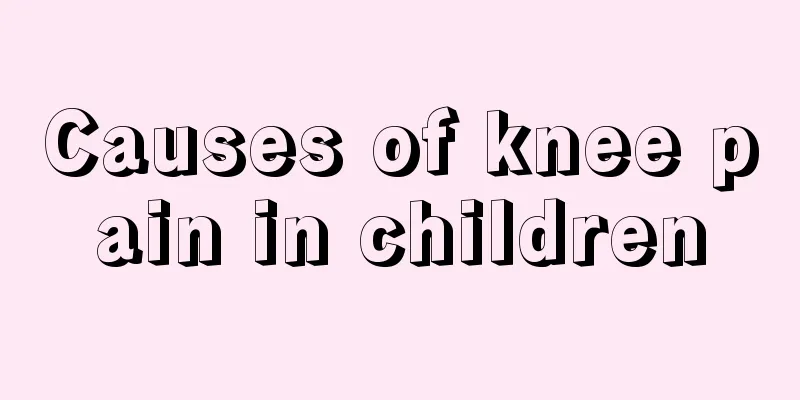How to correct a child's hunchback

|
Some children have hunchbacks, and their parents are very worried. Hunchback can be corrected through certain methods, such as massage and acupressure, or through medical braces. It is very easy to correct a child's hunchback. The main thing is for the parents to leave the child alone at all times. If the hunchback is not corrected in time when you are a child, it will become difficult to correct it when you grow up. If a person develops hunchback in adulthood, sometimes surgery may be necessary to correct it. Children aged 6 to 12 are most likely to have hunchbacks. Paying attention during this period can effectively prevent hunchbacks. By the time they reach high school, it will be difficult for children to correct the habit. Therefore, if there are symptoms of postural hunchback, they should be corrected as soon as possible. Pay attention to correct body posture. Whether you are standing or walking, keep your chest straight and your arms and legs stretched back naturally. Sit with your spine straight. Don't lower your head too much when reading or writing, and don't lie on the table. There is some truth to what people say about “standing like a pine tree and sitting like a bell”. It is best for growing teenagers to sleep on a hard bed without a mattress that is too high so that the spine can remain straight during sleep. Strengthen physical exercise. Take physical education classes seriously, do exercises during breaks, and promote the development of muscle strength. Do corrective exercises as part of your overall exercise routine. Back muscle exercises, especially back extension exercises, can help slow down the progression of hunchback. Every morning and evening, lie on the bed with your shoulders on the edge, lying on your back with your head hanging in the air, and use your hands to touch the ground behind you (pay attention to safety). You can also do this during the day when you are resting. Things will improve slowly. Some very professional body training can effectively correct children's hunchback phenomenon. For example, some children may like to dance. At this time, parents may wish to take their children to dance training classes for exercise. During dance practice, the teacher will correct the child's hunchback phenomenon in time. In this way, the child's hunchback is not only corrected, but also learns to dance. |
<<: What kind of exercise can children do to grow taller?
>>: What are the commonly used medicines for children?
Recommend
What should I do if my child has poor digestion?
Children's poor digestion may be caused by th...
Premonitions of childhood rash
This type of emergency disease in young children ...
What should I do if my baby has a bloated stomach and diarrhea at eight months old?
If your baby has abdominal distension and diarrhe...
Why is the baby's hair falling out in a circle?
Children are the treasures of their parents. Any ...
Treatment for recurring fever in children
I believe that friends who have children at home ...
Is enuresis in children easy to treat?
Enuresis is what we commonly call bed-wetting. It...
What should I do if my two-year-old baby is timid?
There are many reasons why a two-year-old baby is...
Can a three-month-old baby use air conditioning?
Summer is the season when babies are most likely ...
Which kind of antipyretic patch is good for children
The pediatric fever-reducing patch is a new type ...
What should I do if my child has a left humerus fracture?
In the case of a child's left humerus fractur...
Can children grow taller by drinking milk?
I believe that height is a very important issue f...
Four-month-old baby's neck is not stable
The baby's neck is not stable at four months ...
What is the reason for the yellowing of baby's deciduous teeth?
Many parents pay special attention to the health ...
What to do if your 2-year-old baby has a fever and cough
As babies grow up, the thing that worries parents...
What are the newborn amniotic fluid infections?
It is really not easy to conceive a baby. From th...









